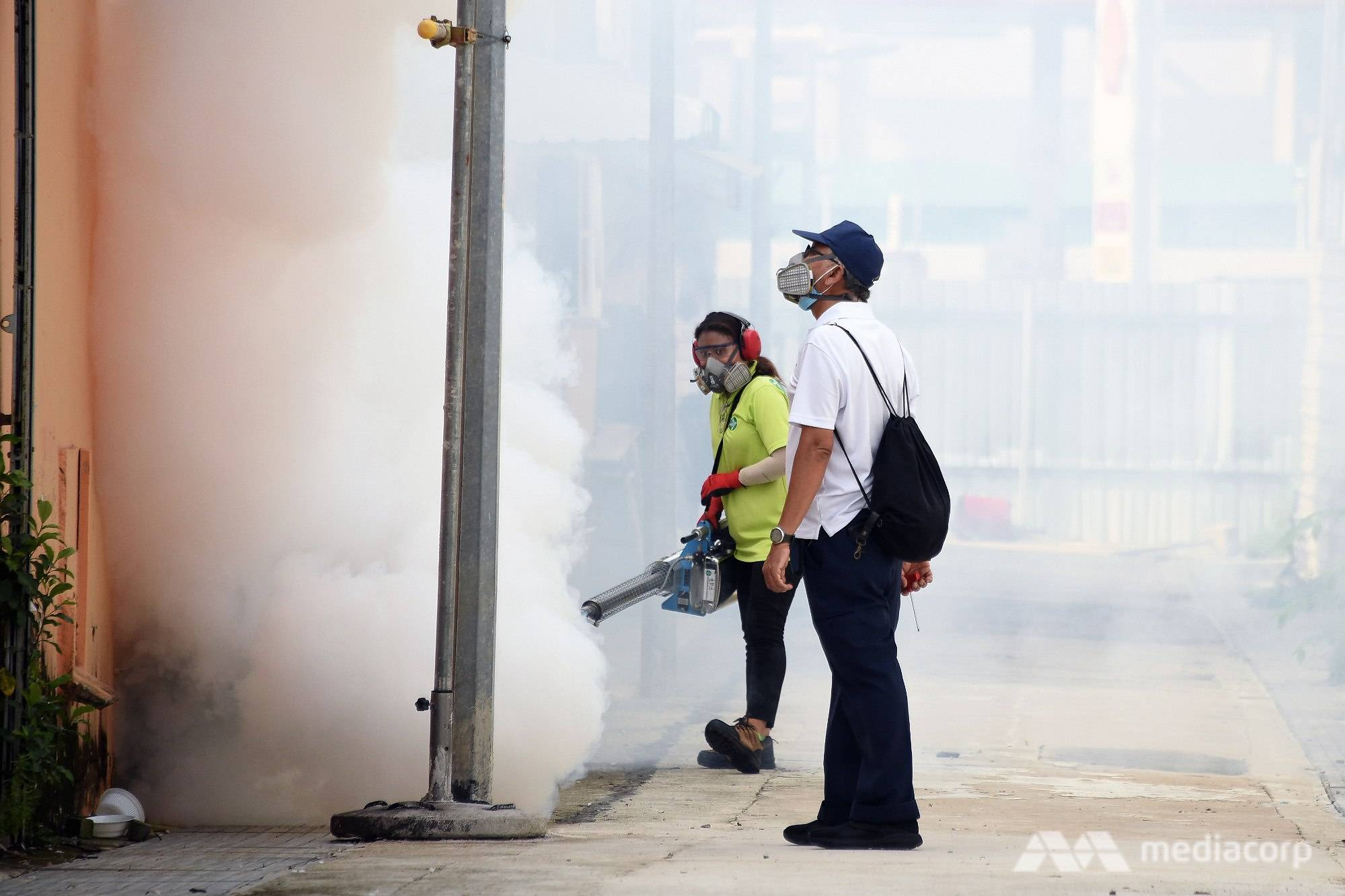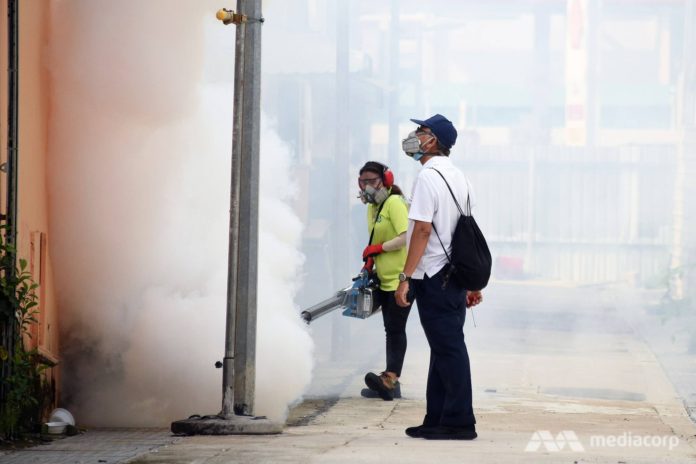SINGAPORE: Fifty per cent fewer breeding habitats of dengue-causing Aedes mosquito were found in town council-managed areas in August compared to the month before, said the National Environment Agency (NEA) on Wednesday (Sep 2).
There were 340 dengue clusters reported as of Tuesday, with about 42 per cent of dengue cases in active clusters living in HDB estates managed by town councils, said NEA in a media release.
Eleven more dengue clusters have been closed, including the 202-case cluster at Leicester Road, the 180-case cluster at Bartley Road, as well as the clusters at Dakota Crescent and Cassia Crescent with 162 and 161 cases respectively.
Overall, about 85 per cent (2,052 of 2,392) of the dengue clusters notified since the start of this year have been closed.
The fall in the number of breeding habitats comes after the NEA worked with town councils to step up dengue prevention efforts over an “intensive two-week islandwide exercise” in July.
These efforts include inspections and vector control operations, ensuring drains were well maintained, common areas were kept litter free, and stagnant water was removed or treated.
Where required, NEA also worked with town councils to coordinate chemical treatment such as fogging, misting and larviciding.
The number of clusters with drain cleaning activities has doubled to 213 in August, compared to the previous month. Coordinated fogging activities have also doubled to 37 in the same time period.
“As the number of dengue cases is still high and we are still in the midst of the traditional dengue season, NEA is working with town councils to continue with the momentum of these intensive dengue prevention efforts,” said the agency.
“We have also observed a slower rate of disease transmission at some of the larger dengue clusters, such as the 243-case cluster at Brighton Crescent, with an average of less than one case reported per day in the past two weeks,” added NEA.
Commentary: In Singapore, battling the COVID-19 threat outside and the dengue peril at home
But the agency said the total number of dengue clusters islandwide remains high, with large clusters located in these areas:
– Aljunied Road, Geylang Road, and Geylang East Avenue 1 and 2 (368 cases)
– Arnasalam Chetty Road and Kim Yam Road (339 cases)
– Bukit Panjang Ring Road (329 cases)
– Arthur Road (314 cases)
– Aljunied Road, Geylang Road and Guillemard Road (291 cases)
A comprehensive list of clusters can be found on the NEA website.
CASE COUNT “STILL HIGH”
A total of 1,155 dengue cases were reported last week, representing a drop of 133 cases from the week before. The highest weekly case count this year was 1,792, recorded in the week ending Jul 25.
Singapore has seen a surge in dengue infections this year, with the number of cases surpassing the previous record high in 2013. As of Tuesday, 27,663 dengue cases have been reported since the beginning of the year, compared to the record 22,170 in 2013.
The large number of cases has been attributed by experts to warmer weather and rainy days since the beginning of this year as well as the “circuit breaker” period, during which non-essential workplaces and schools were shuttered and people were told to stay home.
READ: How the COVID-19 circuit breaker and safe distancing stopped other infectious diseases in their tracks
A low immunity to a different serotype of the virus has also been a contributing factor, NEA said last month.

File photo of an NEA officer supervising a fogging operation in Geylang. (Photo: Try Sutrisno Foo)
“ENCOURAGING INITIAL RESULTS”
From January to August, more than 638,000 inspections have been conducted islandwide. Working with other agencies as well as ministries, NEA has distributed more than 215,000 bottles of mosquito repellent to households in active dengue cluster areas.
READ: More than 46,000 bottles of mosquito repellent given to students in some schools amid dengue outbreak
Since end-June, NEA staff members and volunteers have also reached out to more than 90,000 residents in large dengue cluster areas, with the agency working with grassroots advisers and leaders, as well as community volunteers.
Residents can take steps to protect themselves against mosquito bites, including applying mosquito repellent regularly, wearing long-sleeve tops and long pants, as well as spraying insecticide in dark corners around the home, such as behind curtains and under beds.
“Such protective measures are important given the surge in dengue cases, high mosquito population, and with more people working from home, which also means more blood meals for the day-biting dengue vector, the Aedes mosquito,” said NEA.
Mr Desmond Tan, Minister of State for Sustainability and the Environment, said that following the intensive two-week vector control exercise, the initial results have been “encouraging”, with a reduction in the number of mosquito breeding habitats.
He added: “I hope town councils and community leaders will sustain this momentum to break the dengue transmission chain, and bring the dengue situation under control. NEA will continue to work closely with stakeholders in our fight against dengue.”





